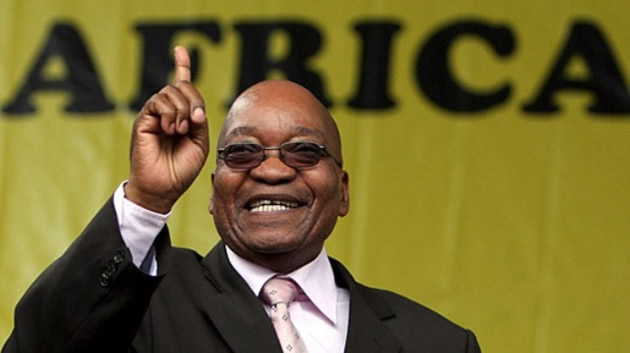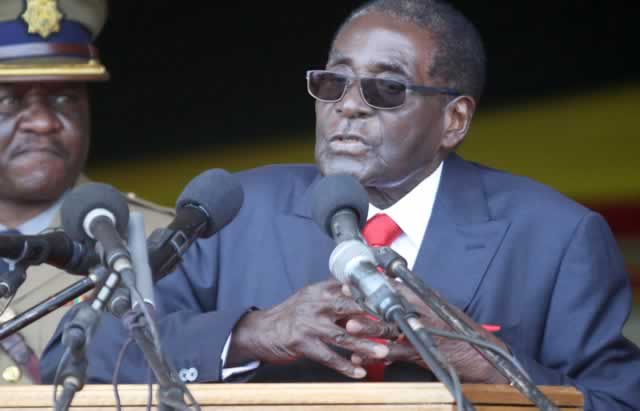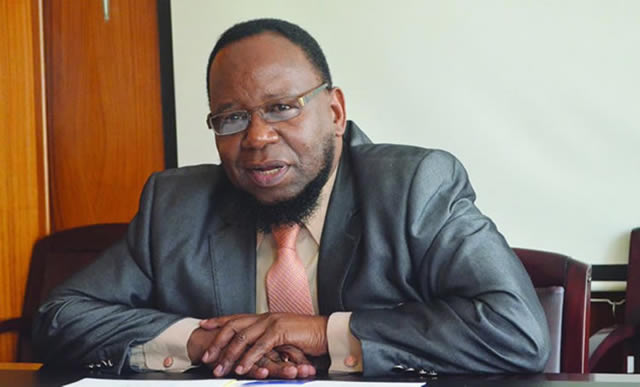ANC, Zuma rule despite relentless attacks from corporate platforms

Udo W. Froese Correspondent
South Africa’s owners of the economy, academia, media and heads of civil society circulated before the ruling ANC’s National Executive Committee meeting last weekend, starting on May 27, 2016, that its president and head-of-state, Jacob G. Zuma, would be asked on Sunday, May 29, 2016, to step down immediately.
This however, did not happen. President Zuma will finish his term of office when the next elective ANC Conference in December 2017 takes place. Zuma being recalled, or pushed out of his position and the ANC, was not part of the ANC NEC agenda last weekend.
The above-mentioned have gone out of their ways to force President Zuma’s early retirement from office, building their attempts of character assassinating him up to the ANC NEC’s gathering.
Meanwhile, the forthcoming local government elections are under threat of being hijacked. This could lead to a split of the ruling ANC.
All political parties campaign for as many votes as they can muster, be it local government elections, or presidential and national elections.
It is common practice that the contesting parties usually have their respective presidents’ faces as the face of the party.
A leading member of the ruling ANC in the local government explained, “The Gauteng Province’s ANC MEC for Human Settlement, Cooperative Governance and Traditional Affairs, Mr Paul Mashathile, plans to have his face copied on to the ballot papers in stead of that of the ANC president.
But, President Zuma is still the president of the ANC and head-of-state of South Africa.
Nonetheless, Mashathile wants this matter to be debated at the ANC NEC’s gathering over this weekend.”
“It would mean that Mashathile attempts to split the ANC into two, with the Democratic Alliance (DA) thus capturing some of the metros in the Gauteng province.
“Would the ANC NEC have the courage to fire Mashathile at this weekend’s NEC gathering on Sunday, May 29, 2016? Mashathile clearly works outside the ANC’s framework.”
They observe that State Security Minister David Mahlabo seems to be doing a good job.
Particularly his analysis of the threats South Africa is currently facing. There are about 453 foreign non-governmental organisations (NGOs) and additional foreign foundations operating in South Africa.
Some 68 NGOs are being registered daily in this country.
At the same time there are “service delivery unrest”, students’ protests and unemployment.
A restless youth has been infiltrated and has become the catchment area for opportunistic political anarchists and anti-democrats.
They instigate destabilisation and threaten civil war.
It is important to repeat what State Security Minister Mahlobo observed regarding political and other destabilisation efforts that require “a deep understanding of the actors and tactics involved”:
“State and non-state actors are hard at work in certain parts of the globe, using various role-players to promote their agendas while undermining the national security of various countries. These actors are in the mass (corporate) media, non-governmental and community-based organisations, foreign multi-national companies, funders of opposition, religious and student organisations, prominent and influential persons running covert intelligence networks to destabilise other countries, who do not share a similar view as them.”
The role of highly skilled intelligence officers has been raised, as former Mbokodo operatives express their fears: “If covert forces can bring down a president, a head-of-state and commander-in-chief of the armed forces, ANC operatives in South Africa would be compromised.
“They would be vigorously pursued. Those covert forces would stop at nothing, using every possible means to hunt them down.”
“Those elements have created a type of war with hidden forces using elements across the board, including law enforcement,” they say.
This situation would spin out of control. A colour revolution focusing on total destabilisation and regime change would be the result.
“Those enemy agents have infiltrated many levels of government, the ruling party, the judiciary, the armed forces and the police services as well as environmental affairs and other departments.
“They recruited young people and infiltrated them into environmental affairs to destroy the development of the country.
“At the moment some of those criminals are dormant.
“Even the US’s Donald Trump attacked America’s environmental affairs for allowing those criminals to hamper development”, senior Mbokodo operatives pointed out.
Corporatists tried in their arrogant, heavy-handed way to dictate who should be South Africa’s minister of finance and who shouldn’t.
The Minister in the President’s Office, Minister Jeff Radebe re-confirmed what Pinky Khoabane documented and Johan Rupert denied.
According to the minister’s confirmation and the mentioned records, Radebe and ANC Treasurer General Dr. Zweli Mkhize met with Neil Coleman of Goldman Sachs, Martin Kingston of Rothschilds, Maria Ramos of Barclays Bank and Bobby Godsell of ‘Leadership South Africa’ to discuss President Zuma’s appointment of David van Rooyen as the new minister of finance. The group then strongly recommended that their friend and former minister of finance, Pravin Gordhan, should occupy that position.
The South African Revenue Services (SARS) however, seemed to be a thorn in Gordhan’s flesh, as a “rogue unit” had been created under his watch.
It has been repeatedly asked, what was the reason for the creation of a “rogue unit”.
“It is an unlawful unit, an act of crime, as it is an assault on civil liberties”, former deputy finance minister Jabu Moleketi explained.
Senior ANC NEC members and observers in the financial industry are quite sure that Gordhan will not survive the above-mentioned criminal scandal.
According to those senior members, it is well known that Gordhan has always punched above his weight.
They are also critical of the country having its banknotes printed in Munich, Germany, as it means that South Africa has given up its national sovereignty.
Finally, it seems that the ANC NEC, including the leadership from Kwa-Zulu, will support its Jacob Zuma and will see to it that he serves his full second term as president of the Republic of South Africa. — www.theotherafrika.com









Comments